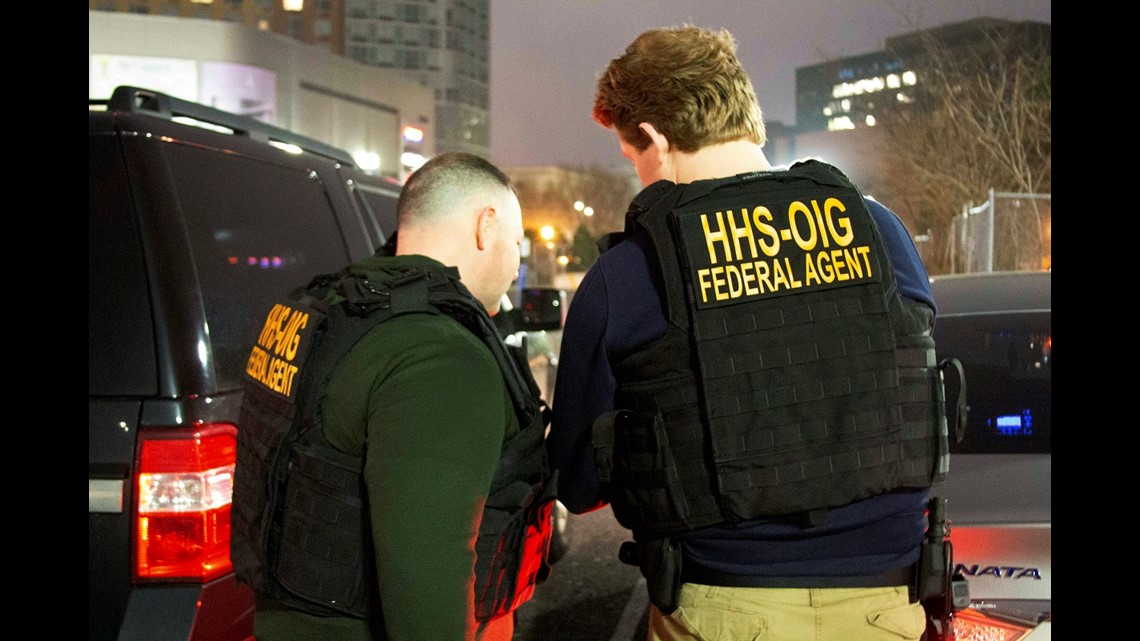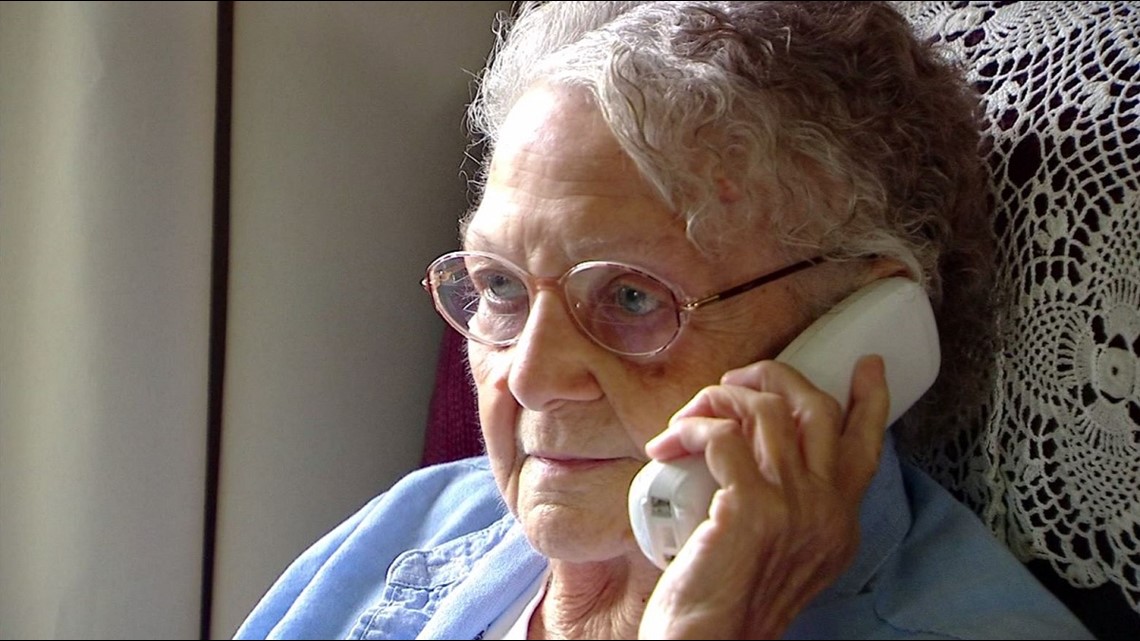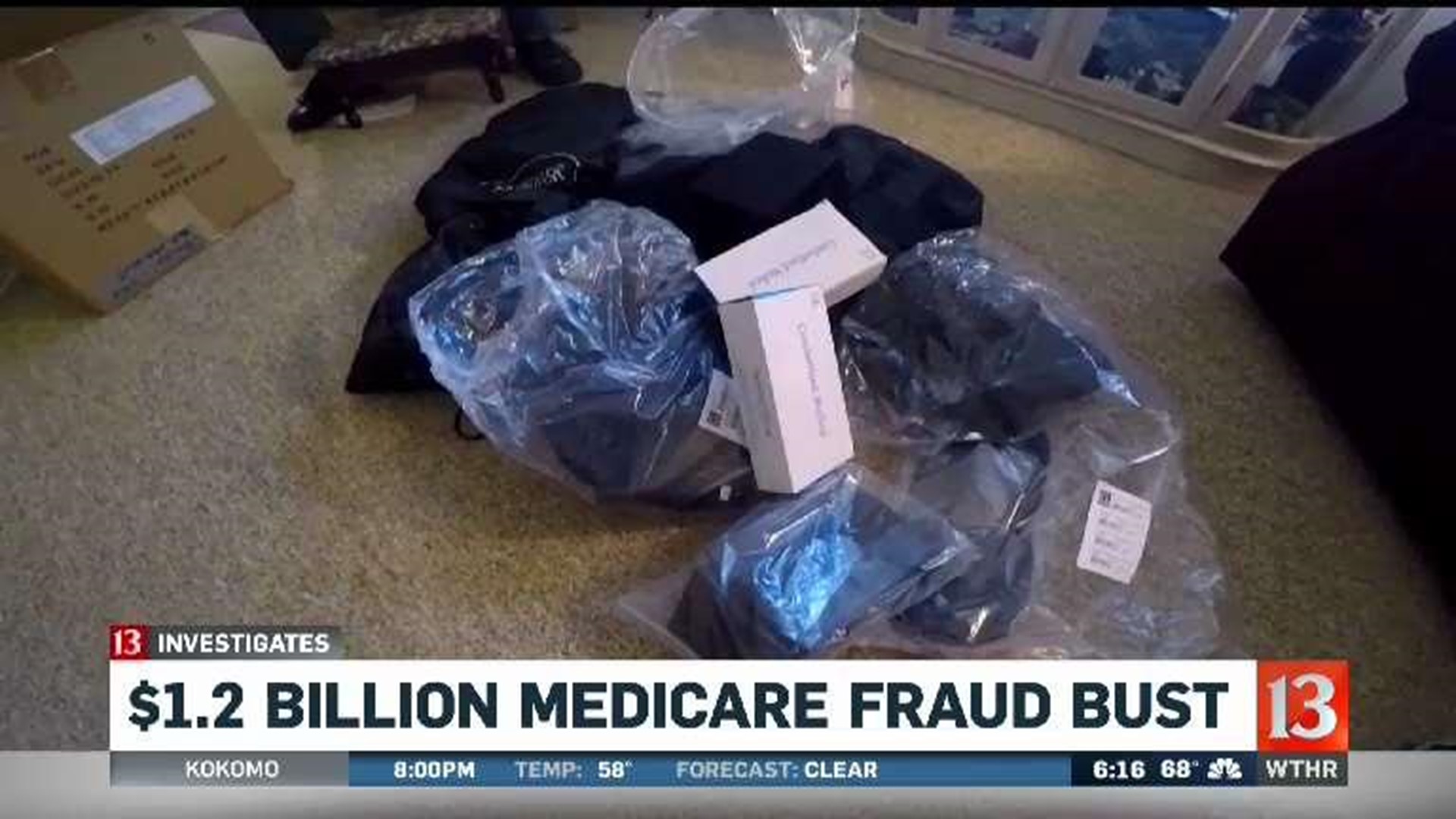WASHINGTON (AP) — Federal authorities said Tuesday they’ve broken up a $1.2 billion Medicare scam that peddled unneeded orthopedic braces to hundreds of thousands of seniors via foreign call centers.
The Justice Department announced charges against 24 people across the U.S., including doctors accused of writing bogus prescriptions for unneeded back, shoulder, wrist and knee braces. Others charged included owners of call centers, telemedicine firms and medical equipment companies.
The Health and Human Services inspector general’s office said the fast-moving scam morphed into multiple related schemes, fueled by kickbacks among the parties involved. The FBI, the IRS, and 17 U.S. attorney’s offices took part in the crackdown. Arrests were made Tuesday morning.


Medicare’s anti-fraud unit said it’s taking action against 130 medical equipment companies implicated. They billed the program a total of $1.7 billion, of which more than $900 million was paid out.
Telemarketers would reach out to seniors offering “free” orthopedic braces, also touted through television and radio ads. Beneficiaries who expressed interest would be patched through to call centers involved in the scheme. Officials described an “international telemarketing network” with call centers in the Philippines and throughout Latin America.
The call centers would verify seniors’ Medicare coverage and transfer them to telemedicine companies for consultations with doctors.
“The telemedicine we are talking about is basically a tele-scam,” said Gary Cantrell, who oversees fraud investigations for the HHS inspector general’s office. “We are not talking about the use of advanced technology to provide better access to care.”
The doctors would write prescriptions for orthopedic braces, regardless of whether the patients needed them or not. In some cases several braces were prescribed for the same patient.
The call centers would collect prescriptions and sell them to medical equipment companies, which would ship the braces to beneficiaries and bill Medicare. Medical equipment companies would get $500 to $900 per brace from Medicare and would pay kickbacks of nearly $300 per brace.
According to the U.S. Justice Department, once the individuals behind the schemes used the kickbacks, bribes and offshore corporations to steal millions from Medicare, some of those proceeds were then used to purchase expensive cars, yachts and luxury real estate in the United States and in foreign countries.
Scam exposed by 13 Investigates
WTHR helped expose the widespread scam involving medical supplies in 2014 with the help of a doctor in Parke County, Indiana. Dr. Daniel Dwyer showed 13 Investigates how telemarketers and medical supply companies routinely faxed his office prescription requests for back braces and knee braces for his elderly patients, even though they never requested the equipment.
“I feel it’s a scam,” Dwyer told 13 Investigates at the time. “Most physicians are going to go ahead and sign that [prescription] because they feel, 'Ah the patient must have requested it.' Iin reality, they don’t, they don’t want it at all.”
Myrtle Harper, one of Dwyer’s patients, received multiple calls weekly for the medical devices, and each time she declined the braces. But weeks later, a box full of medical devices arrived on her doorstep anyway.
“I don’t know how many times I told them ‘No,’” she said. “They don’t listen. I don’t need it, but they won’t take no for an answer.”


13 Investigates met with a whistleblower who worked for one of the telemarketing companies that tried to convince seniors to accept back braces and other medical equipment. He said employees were rewarded for being persistent and ruthless.
“With older people, you know, after you call them so many times, you start to wear them down, they'll pretty much do whatever you say,” he explained. “[There were] situations where we're sending out ankle braces and knee braces and the patient doesn't have ankles or legs…we've sent out a prescription to a doctor’s office for a patient to get two ankle braces and their legs were amputated at the knees probably 20 years ago.”
He admitted seniors who turned down medical supplies would be called again and again -- until they finally gave in.
“They were basically just saying ‘yes’ at some point to discontinue the harassing phone calls whether they needed it or not,” he said.
WTHR, Dwyer, the state’s Senior Medicare Patrol Office and frustrated patients reported the incidents to the U.S. Department of Health and Human Services, but no action was taken against the companies involved.
Last year, when more patients contacted WTHR to complain about receiving unsolicited medical devices, WTHR again reported on the nationwide scam, which appeared to have gotten even worse.
A few months later, Medicare’s fraud hotline began receiving a very high volume of calls about medical device fraud, prompting a widespread federal investigation. As that investigation progressed, federal agents gained cooperation from people familiar with the various schemes, leading to today’s arrests.
“Frightening” conspiracy
Officials said it’s one of the biggest frauds the inspector general’s office has seen. Charges were being brought against defendants in California, Florida, New Jersey, Pennsylvania, South Carolina and Texas.
“The breadth of this nationwide conspiracy should be frightening to all who rely on some form of health care,” IRS criminal investigations chief Don Fort said in a statement. “The conspiracy...details broad corruption, massive amounts of greed and systemic flaws in our health care system that were exploited by the defendants.”
Health care fraud is a pervasive problem that costs taxpayers tens of billions of dollars a year. The true extent of it is unknown, and some cases involve gray areas of complex payment policies.
Experts say part of the problem is that Medicare is required to pay medical bills promptly, which means money often goes out before potential frauds get flagged. Investigators call that “pay and chase.”
In recent years, Medicare has tried to adapt techniques used by credit card companies to head off fraud. Law enforcement coordination has grown, with strike forces of federal prosecutors and agents, along with state counterparts, specializing in health care investigations.
The Medicare beneficiaries drawn into the orthopedic braces scam didn’t have to pay anything up front, but Cantrell said they have been harmed as well: A beneficiary’s private information, once in the hands of fraudsters, can be resold for many illegal purposes.
Additionally, if a beneficiary whose information was misused ever does need an orthopedic brace, he or she may encounter waiting periods from Medicare. The program limits how often it pays for certain supplies and equipment.
“It can be very attractive to receive equipment,” Cantrell said. “But after giving out your identifying information, it could be compromised to perpetuate additional fraud. There is no fraud without the ID number of a Medicare beneficiary.”
If you receive an unsolicited phone call about medical equipment, you should hang up the phone, according to Nancy Moore, who oversees the Senior Medicare Patrol office in Indiana. She says, better yet, if you don’t recognize a phone number assume it is a telemarketer and don’t answer the call.
“Picking up your phone is like picking up a hitchhiker,” Moore said. “If you don’t recognize who it is, don’t do it."

